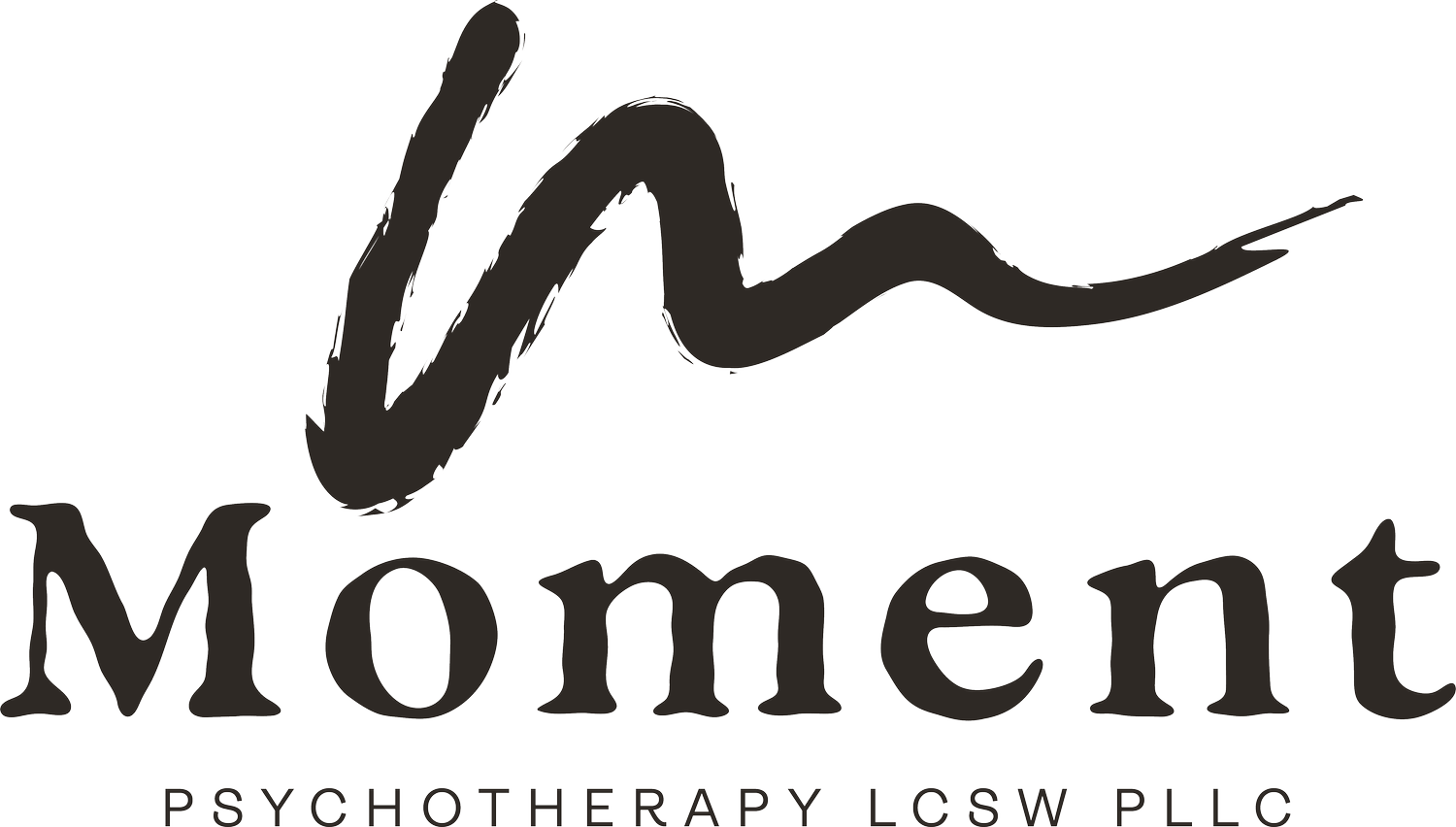EMDR Therapy New York
You’ve done the work in therapy. You know your story, your patterns, and your triggers. But insight hasn’t been enough to change the behaviors or beliefs that feel stuck, nor the pull toward relationship dynamics you know aren’t good for you.
You want more than a slight improvement, you want a true shift.
You’re looking for more than insight. You want the anxiety in your body to finally ease. You’re ready to follow through on the boundaries you’ve been thinking about for months. You’re tired of carrying the same pain and exhaustion, and you’re longing to feel more at home in yourself. Coping tools help, but they don’t get to the root. You want real healing, the kind that lets you move through your day feeling lighter and genuinely more at peace.
EMDR can help.
Are you experiencing any of these symptoms?
Do you worry about being abandoned, alone, or overlooked?
Do you experience flashbacks, nightmares, or intrusive memories that won’t go away?
Do you have panic attacks or find yourself constantly on edge, startling easily?
Do you feel confused about your past or certain situations, unsure whether you were at fault or someone else crossed a line?
Do you struggle to trust others or feel vulnerable in relationships?
Do you go through periods of deep sadness or depression?
Do you feel more irritable or emotionally reactive than you’d like to be?
Do daily tasks feel overwhelming, even when you can’t pinpoint a clear reason?
Do intrusive thoughts or memories leave you feeling distressed or unsettled?
Do you want to let go of the pain from the past so you can focus on your present and future?
If any of this feels familiar, you’re simply being human. Many people have experienced trauma in one form or another, and it’s normal to feel confused or unsure about what you’re carrying. Sometimes you remember the event clearly, and sometimes a memory only surfaces years later when something, tress, a relationship, or even feeling safer than before, triggers it. This is your mind’s way of asking for healing. EMDR therapy New York might be the shift you’ve been looking for. It offers a structured, empowering way to heal deeply by reconnecting your mind and body, and allowing your nervous system to release what no longer serves you.
What is EMDR Therapy?
EMDR therapy, short for Eye Movement Desensitization and Reprocessing, is a powerful and research-backed approach to healing trauma, anxiety, and other distressing life experiences. It helps people process painful memories that may feel “stuck,” so they can move forward with more ease, clarity, and emotional freedom.
When we go through something overwhelming, whether it’s a single traumatic event or ongoing stress, our brain doesn’t always get the chance to fully process it. Those experiences can linger, showing up later as anxiety, emotional triggers, low self-worth, or even physical symptoms. EMDR helps you gently reprocess these memories, so they no longer feel as intense or disruptive.
Unlike traditional talk therapy, EMDR therapy uses bilateral stimulation (such as eye movements or tapping) while you focus on specific thoughts, feelings, or images related to your past. This technique helps activate your brain’s natural healing process, similar to what happens during REM sleep. You don’t have to go into every detail of what happened. Instead, we work together to create safety, build resources, and process at a pace that feels manageable for you.
How does EMDR Therapy work?
EMDR therapy facilitates communication between the cognitive and emotional centers of the brain. Instead of getting stuck in old memories or reactions, EMDR guides the brain to revisit difficult experiences in a safer, more integrated way. While focusing on a troubling memory, you engage in bilateral stimulation—like gentle eye movements, taps, or sounds—which supports the brain in reorganizing how the memory is stored. Over time, the emotional charge decreases, new insights emerge, and healthier beliefs become easier to access. Many people find that they can finally move forward without the past weighing so heavily on them. During EMDR Therapy, you don’t have to go into every detail of what happened. Instead, Our EMDR therapist New York work together with you to create safety, build resources, and process at a pace that feels manageable for you.
The 8 Phases of EMDR Therapy New York
While EMDR Therapy is often associated with eye movements, it is actually an eight-phase treatment model that involves much more than bilateral stimulation. Each phase has a specific purpose and helps your mind and body move toward healing in a safe, contained way.
1. History Taking & Treatment Planning
You and your therapist begin by exploring your history, identifying the experiences—especially traumatic or distressing ones—that still affect you. Together, you decide which memories or themes will be the focus of treatment.
2. Preparation
Your therapist explains how EMDR works and answers any questions you have. You’ll learn grounding tools and coping strategies so that you feel supported and able to manage any emotions that arise during sessions.
3. Assessment
In this phase, you identify the specific memory you want to reprocess. You’ll explore the images, thoughts, emotions, body sensations, and core beliefs that are connected to that memory.
4. Desensitization
This is the phase most people think of when they hear “EMDR.” While you focus on the memory, your therapist guides you through bilateral stimulation—using eye movements, tapping, or audio tones. This helps your brain reprocess the experience in a new, less overwhelming way.
5. Installation
Here, you strengthen a new positive belief to replace the old, trauma-based one. For example, shifting from “I am powerless” to “I am capable,” and helping your brain fully integrate that new belief.
6. Body Scan
You check in with your body to notice any residual tension or sensation connected to the memory. Your therapist helps you process whatever remains so your body and mind align with the new, healthier belief.
7. Closure
At the end of each session, your therapist ensures you feel grounded and stable before leaving. You might talk about your thoughts, feelings, and bodily sensations, and use calming techniques to return fully to the present.
8. Reevaluation
At the beginning of the next session, you revisit the target memory to assess how much distress remains. You’ll explore any new insights or shifts and identify next targets or related memories that may benefit from reprocessing.
EMDR Resources: Building Safety and Stability Before Trauma Processing
When people think of EMDR therapy, they often picture Phase 4, the Desensitization phase where traumatic memories are reprocessed using bilateral stimulation. But effective trauma therapy begins much earlier. Before any processing happens, EMDR includes a crucial step: Phase 2, the Preparation Phase, where you and your therapist focus on building emotional resources, grounding techniques, and coping skills that support you throughout the healing process.
During this preparation phase, you’ll work with our EMDR therapist in New York to develop personalized EMDR resourcing techniques designed to help you regulate your emotions and feel safe. One of the most well-known tools is creating a Safe or Calm Place, an internal image or experience that helps your mind and body relax when distress comes up during EMDR sessions.
Your therapist may also introduce containment strategies, which help you “put away” overwhelming memories when you’re not actively processing them. This allows you to stay grounded between sessions while keeping trauma work manageable and paced.
Additional EMDR resources, such as grounding exercises, nurturing imagery, and somatic awareness, help you strengthen your internal sense of safety and support. Over time, these practices expand your window of tolerance, making it easier to stay present with difficult emotions without becoming overwhelmed.
These EMDR resourcing skills not only prepare you for trauma reprocessing, but also offer long-term emotional resilience, helping you feel more stable, regulated, and empowered in everyday life.
Who might benefit from EMDR Therapy New York?
You might benefit from an appointment with an EMDR Therapist in New York if you are experiencing:
Trauma or childhood/attachment wounds (CPTSD)
Grief, loss, divorce, or separation
Addictions and compulsive patterns
Stress, anxiety, phobias or panic
Depression, negative self-talk, and self-esteem concerns
Recovery from chronic pain, injuries, or medical trauma
Burnout in helping professions
Blocks to performance, creativity or manifestation
Who Might Not Be a Good Fit for EMDR Therapy?
While EMDR therapy is incredibly effective for many people, it’s not the best fit for everyone. Part of our work is to help assess whether EMDR is appropriate for your current needs and emotional capacity.
EMDR may not be the right fit at this time if:
You’re actively struggling with untreated psychosis or severe dissociation
You’re in early recovery from substance use without consistent support
You’r having active thoughts of hurting your self or others
In these cases, we may begin with stabilization work—like somatic therapy, grounding skills, or building emotional regulation—before moving into EMDR. Safety and readiness are essential for EMDR to be effective and not retraumatizing.

